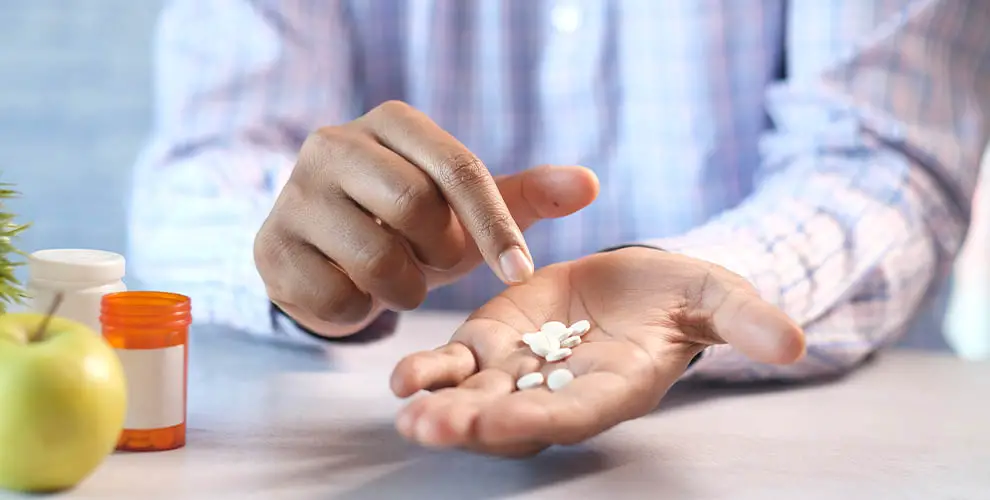
When it comes to managing certain health conditions, medications play a vital role in keeping us healthy. Spironolactone is one such medication, often prescribed to treat conditions like high blood pressure, heart failure, and edema. Many people wonder, “Can I drink coffee while taking spironolactone?” In this article, we’ll explore the interactions between coffee and spironolactone, the potential side effects, and whether it’s advisable to consume caffeine while on this medication. But before we delve into the coffee-spironolactone relationship, let’s start by understanding what spironolactone is and how it works.
What is Spironolactone?

Spironolactone is a medication commonly used to treat various conditions related to fluid retention and high blood pressure. It belongs to a class of drugs known as potassium-sparing diuretics. These drugs work by helping your body eliminate excess salt and water while retaining potassium, a crucial mineral for various bodily functions.
How Does Spironolactone Work?
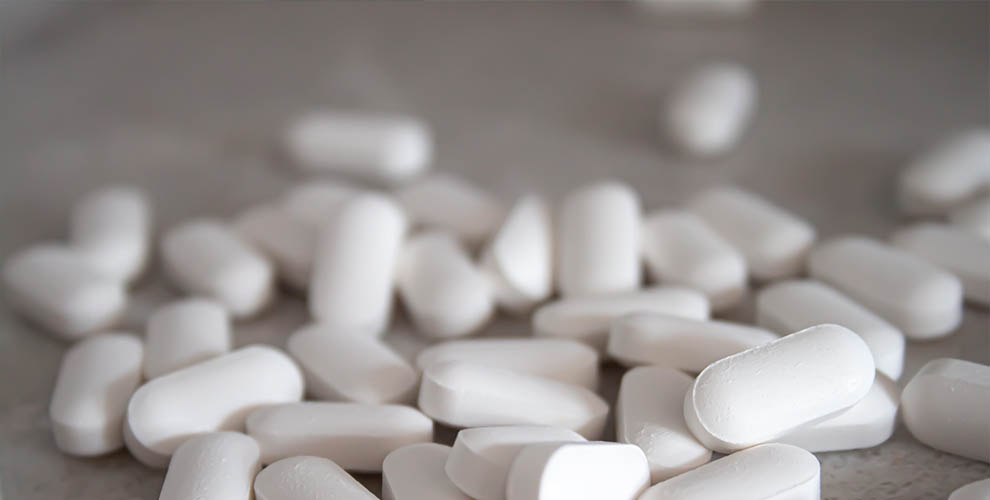
Spironolactone works by targeting a hormone called aldosterone. This hormone is responsible for regulating the balance of salt and water in your body. By blocking the effects of aldosterone, spironolactone helps your kidneys excrete excess sodium and water while preserving potassium. This process reduces the overall volume of blood in your vessels and lowers blood pressure, making it effective for conditions like hypertension and heart failure.
Side Effects of Spironolactone
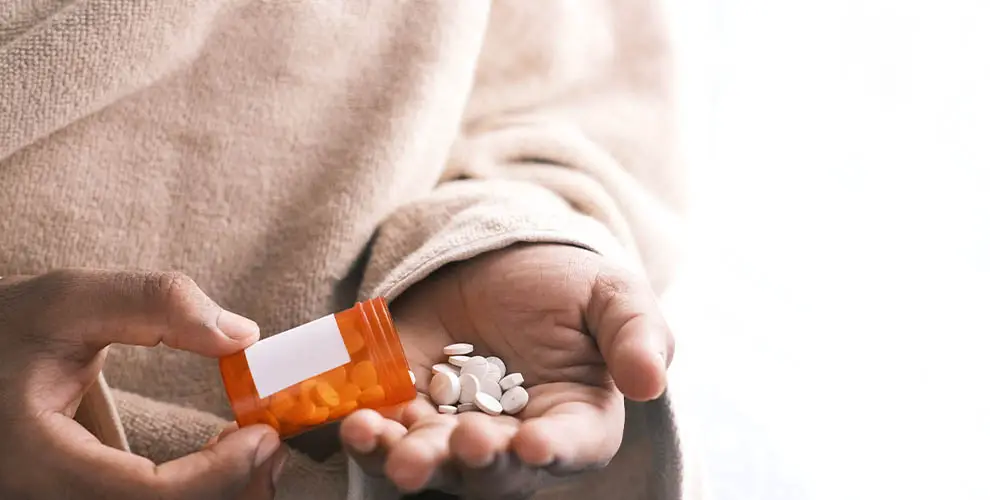
Like any medication, spironolactone may come with certain side effects. Common side effects can include dizziness, headache, stomach pain, and frequent urination. However, it’s important to note that not everyone experiences these side effects, and they may vary in intensity from person to person.
Now that we’ve covered the basics of spironolactone, let’s shift our focus to coffee, its components, and how it can impact your health.
Let’s Know What’s in Your Coffee
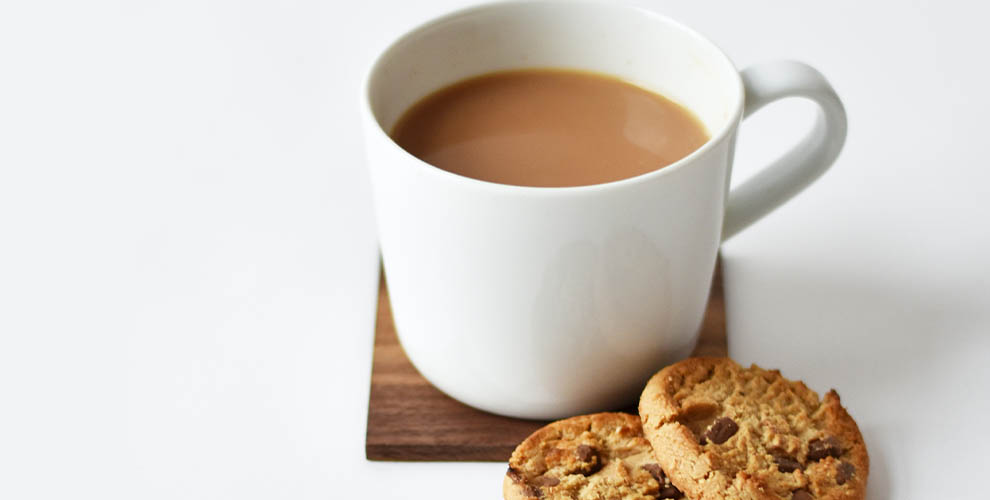
Coffee is one of the world’s most popular beverages, known for its rich flavor and caffeine content. A typical cup of coffee contains various compounds, with caffeine being the most well-known. Other constituents include antioxidants, vitamins, minerals, and organic compounds that contribute to its unique taste and aroma.
Health Benefits and Side Effects of Coffee
Coffee enthusiasts often debate the potential health benefits and drawbacks of their favorite brew. On one hand, coffee consumption has been associated with several potential benefits, including improved mental alertness, enhanced mood, and a reduced risk of certain diseases like Parkinson’s and type 2 diabetes. Additionally, coffee is known for its antioxidant properties, which can help combat free radicals and inflammation in the body.
However, it’s essential to strike a balance. Overconsumption of coffee can lead to side effects such as insomnia, increased heart rate, and digestive issues. The effects of coffee can also vary from person to person based on factors like individual tolerance and overall health.
In the next sections of this article, we will explore the interactions between caffeine and spironolactone, the safety of consuming caffeine while on this medication, potential side effects related to drinking coffee when taking spironolactone, and address the question, “Can I drink coffee while taking spironolactone?”
How Does Coffee Interact with Your Body?

Coffee is one of the most beloved and widely consumed beverages worldwide. For many, it’s an essential part of their daily routine, providing a much-needed energy boost and a comforting aroma. But have you ever wondered how coffee interacts with your body? In this blog post, we’ll delve into the fascinating journey coffee takes in your system, explaining its effects and the science behind them.
The Composition of Coffee
Before we explore coffee’s interactions with your body, it’s essential to understand what coffee is made of. Coffee beans contain various compounds, but the key player is caffeine, which is a natural stimulant. Here’s a brief breakdown of coffee’s composition:
Caffeine:
The primary active ingredient, caffeine is known for its stimulating effects on the central nervous system.
Antioxidants:
Coffee is rich in antioxidants, such as chlorogenic acid, which can have several health benefits.
Lipids and Sugars:
These contribute to coffee’s aroma and flavor.
How Coffee Interacts with Your Body
Now, let’s dive into how coffee interacts with your body, step by step:
1. Absorption
When you take a sip of your favorite coffee, the caffeine it contains enters your digestive system, where it’s absorbed into the bloodstream.
2. Brain Stimulation
Once in your bloodstream, caffeine makes its way to your brain. It acts as an adenosine receptor antagonist, which means it blocks the calming neurotransmitter adenosine, leading to increased alertness and reduced drowsiness.
3. Hormonal Response
Caffeine also stimulates the release of hormones like adrenaline and norepinephrine, leading to increased heart rate, heightened senses, and a temporary burst of energy.
4. Improved Physical Performance
This surge in adrenaline can enhance physical performance and make you feel more awake and capable of tackling tasks.
5. Potential for Increased Anxiety
While coffee’s stimulating effects are welcomed by many, excessive caffeine intake can lead to increased anxiety, restlessness, and nervousness. It’s crucial to find your own caffeine tolerance level and avoid overconsumption.
6. Antioxidant Benefits
Coffee is a rich source of antioxidants that can have various health benefits, including reducing the risk of certain diseases and improving overall well-being.
7. Diuretic Effect
Coffee also has a mild diuretic effect, which means it can increase urine production. This may lead to dehydration if not countered by adequate water intake.
8. Digestive Impact
Coffee can stimulate the digestive system and may lead to increased bowel movements for some individuals. It’s often used as a natural remedy for constipation.
9. Sleep Disruption
Caffeine’s stimulating effects can disrupt sleep patterns if consumed too late in the day. It’s advised to avoid coffee in the afternoon or evening to ensure a good night’s rest.
Coffee is a complex and beloved beverage with numerous interactions in your body. It offers an energy boost, enhances mental alertness, and provides a range of potential health benefits, but it’s essential to consume it in moderation. Understanding how coffee interacts with your body can help you make informed choices about your caffeine intake and ensure you enjoy the many perks of this popular beverage without falling victim to its drawbacks.
Caffeine Effects
Caffeine, a central component of coffee, is a natural stimulant that affects the central nervous system, leading to increased alertness and energy. Many people rely on their daily dose of caffeine to kickstart their mornings or stay awake during the day. However, when you’re taking medication like spironolactone, it’s essential to consider how caffeine may influence its effects.
Stay tuned as we delve deeper into the coffee and spironolactone relationship. We’ll answer your burning questions: Is it safe to consume caffeine while taking spironolactone, and are there any potential side effects of drinking coffee when on this medication? Your health and well-being are our top priorities, and we’re here to provide you with the information you need to make informed choices.
Is it Safe to Consume Caffeine While Taking Spironolactone?

Now that we’ve covered the fundamentals of spironolactone and the components of coffee, let’s address the primary concern: Is it safe to consume caffeine while taking spironolactone?
The answer to this question isn’t a simple ‘yes’ or ‘no.’ It depends on various factors, including your individual health, tolerance to caffeine, and the dosage of spironolactone prescribed by your healthcare provider.
Factors to Consider:
Individual Tolerance:
Everyone’s sensitivity to caffeine varies. Some individuals can enjoy multiple cups of coffee without experiencing adverse effects, while others may be more sensitive to caffeine’s stimulating properties. It’s crucial to be aware of your personal tolerance and how caffeine affects your body.
Dosage of Spironolactone:
The dosage of spironolactone prescribed by your doctor plays a significant role in determining whether caffeine consumption is safe. Higher doses of spironolactone may increase the likelihood of interactions with caffeine.
Underlying Health Conditions:
Individuals with certain medical conditions may be more susceptible to caffeine’s effects. For example, if you have heart issues, anxiety disorders, or a history of arrhythmias, caffeine can potentially exacerbate these conditions. In such cases, it’s advisable to limit or avoid caffeine consumption.
Hydration:
Both spironolactone and caffeine can have diuretic effects, meaning they may increase urine output. It’s essential to stay adequately hydrated, especially if you’re consuming both caffeine and spironolactone, to avoid dehydration.
Timing:
The timing of your coffee consumption can also be crucial. Taking spironolactone in the morning and having coffee shortly afterward may not be the best approach, as it could potentially amplify the diuretic effect and lead to an increased risk of dehydration.
The timing of your coffee consumption can also be crucial. Taking spironolactone in the morning and having coffee shortly afterward may not be the best approach, as it could potentially amplify the diuretic effect and lead to an increased risk of dehydration.
Potential Side Effects of Drinking Coffee While on Spironolactone
While caffeine in moderation is generally safe for most people, it’s essential to be aware of potential side effects that may arise from drinking coffee while on spironolactone. These can include:
Increased Blood Pressure:
Caffeine is known to temporarily raise blood pressure. If you’re taking spironolactone to control high blood pressure, the combination of caffeine and spironolactone may counteract the medication’s intended effects.
Dehydration:
Both caffeine and spironolactone have diuretic properties, which can lead to increased urine output. This can potentially result in dehydration, which is not only uncomfortable but can also have adverse health effects.
Electrolyte Imbalance:
Spironolactone’s primary function is to affect the balance of electrolytes, particularly potassium. Caffeine consumption may further disrupt this balance, potentially leading to side effects related to electrolyte imbalances.
Nervousness and Anxiety:
Caffeine can increase feelings of nervousness and anxiety in some individuals. If you’re already prone to anxiety or if your doctor has prescribed spironolactone for a condition like heart failure, where maintaining a stable mood is crucial, excessive caffeine consumption should be approached with caution.
The compatibility of caffeine and spironolactone varies from person to person, and it’s essential to consult with your healthcare provider regarding your specific situation. They can provide personalized advice based on your medical history, medication dosage, and individual factors.
In the next sections of this article, we’ll provide some practical tips for those who want to continue enjoying their coffee while taking spironolactone. We’ll also offer guidance on alternative beverages and strategies to stay healthy and hydrated while on this medication. Stay with us for more valuable insights.
[Note: Remember, this article is for informational purposes only and should not be considered a substitute for professional medical advice. Always consult your healthcare provider before making significant changes to your diet or medication regimen.]
Practical Tips for Coffee Enthusiasts Taking Spironolactone

If you’re a coffee lover and you’ve been prescribed spironolactone, you don’t necessarily have to give up your favorite brew. Here are some practical tips to help you enjoy your coffee while minimizing potential interactions with spironolactone:
Moderation is Key:
The key to enjoying coffee while on spironolactone is moderation. Instead of multiple cups a day, consider limiting your caffeine intake to one or two cups. This can help reduce the risk of potential side effects.
Hydration:
Be sure to balance your coffee consumption with adequate hydration. Drinking plenty of water can counteract the diuretic effects of both caffeine and spironolactone, helping you stay well-hydrated.
Timing Matters:
Consider timing your coffee consumption carefully. It’s often best to enjoy your coffee a few hours after taking your spironolactone medication to avoid an immediate diuretic effect that could lead to dehydration.
Observe How You Feel:
Pay close attention to how your body responds to caffeine while on spironolactone. If you notice any adverse effects like increased anxiety, palpitations, or changes in your blood pressure, it may be a sign that you need to cut back on caffeine.
Discuss with Your Healthcare Provider:
Communication with your healthcare provider is essential. They can provide personalized guidance based on your specific situation, adjust your medication if needed, and address any concerns you may have.
Alternative Beverages for Spironolactone Users
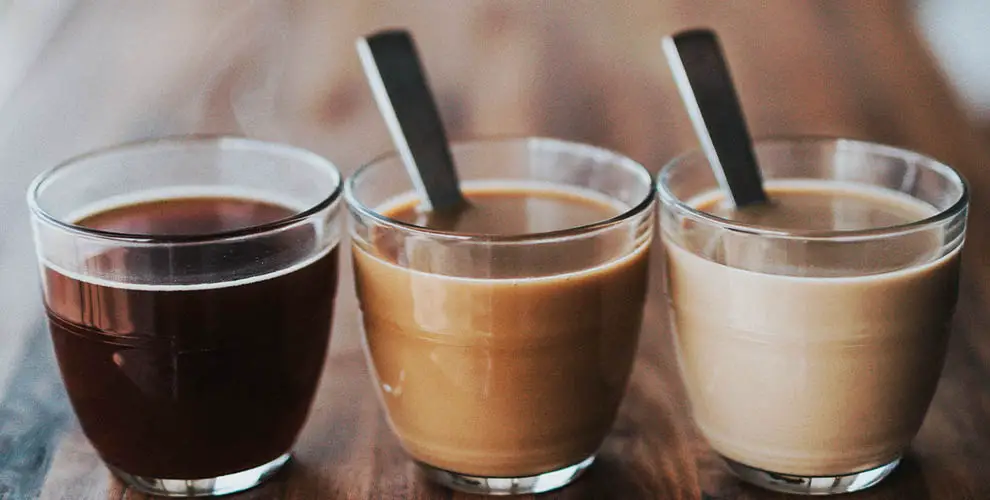
If you find that coffee and spironolactone don’t mix well for you, there are alternative beverages that can provide a satisfying and caffeine-free experience. Consider these options:
Herbal Tea:
Herbal teas come in a variety of flavors and can be caffeine-free. They offer a soothing and warm beverage option without the stimulating effects of caffeine.
Decaffeinated Coffee:
If you enjoy the taste of coffee but want to avoid caffeine, decaffeinated coffee is a suitable alternative. It retains the flavor you love with minimal caffeine content.
Water with Lemon:
A simple glass of water with a slice of lemon can be a refreshing and hydrating choice. Lemon-infused water provides a subtle flavor without caffeine or added sugars.
Fruit-Infused Water:
Jazz up your hydration with fruit-infused water. Add slices of your favorite fruits, such as strawberries, cucumber, or citrus, to give your water a natural and delicious twist.
The relationship between coffee and spironolactone is nuanced and can vary from person to person. While some individuals can safely enjoy their daily cup of coffee while taking this medication, others may need to exercise caution or consider alternative beverages to minimize potential interactions and side effects.
Remember that your healthcare provider is your best source of guidance when it comes to managing your medication and dietary choices. Always consult with them if you have concerns or questions about caffeine consumption while on spironolactone.
Balancing your health with your lifestyle preferences is possible with the right information and a thoughtful approach. We hope this article has provided you with valuable insights to make informed choices regarding coffee and spironolactone. Your well-being is our priority, and we’re here to help you on your health journey.
[Note: The information provided in this article is for general guidance and should not replace the advice of a healthcare professional. Always consult with your doctor for personalized recommendations.]
What are the recommended guidelines for coffee consumption when on spironolactone?

If you’re one of the millions of people taking Spironolactone, you may be wondering about its interactions with common daily habits, such as coffee consumption. Spironolactone is a medication often prescribed to manage conditions like hypertension, heart failure, and hormonal imbalances, and understanding how it interacts with caffeine is crucial. In this blog post, we will discuss the recommended guidelines for coffee consumption when you’re on Spironolactone and provide insights to help you make informed decisions.
Understanding Spironolactone
Before delving into the guidelines for coffee consumption, let’s briefly understand what Spironolactone is and how it works. Spironolactone is a diuretic that helps the body eliminate excess salt and water, reducing fluid retention and lowering blood pressure. It also has anti-androgenic properties, making it an effective treatment for conditions like acne and hirsutism.
Caffeine and Spironolactone Interaction
While there is no direct interaction between caffeine and Spironolactone, both substances can have an impact on your body, and their effects may overlap. Here are some key points to consider:
1. Diuretic Effect
- Spironolactone is a diuretic, and caffeine can act as a mild diuretic as well. When combined, they may increase the frequency of urination, potentially leading to dehydration. It’s essential to stay well-hydrated while on Spironolactone, so be mindful of your fluid intake.
2. Blood Pressure
- Spironolactone is often prescribed to lower blood pressure, while caffeine can temporarily raise it. If you have hypertension, it’s important to monitor your blood pressure regularly and limit caffeine intake if necessary.
3. Anxiety and Nervousness
- Caffeine is known to stimulate the central nervous system, potentially causing anxiety or nervousness. If you experience these side effects while on Spironolactone, reducing your caffeine intake may be beneficial.
Recommended Guidelines for Coffee Consumption
Considering the potential interactions between Spironolactone and caffeine, here are some guidelines to follow:
1. Consult Your Healthcare Provider
- Always consult your healthcare provider about your caffeine intake while on Spironolactone. They can provide personalized recommendations based on your health and medical history.
2. Monitor Your Blood Pressure
- If you have hypertension, keep a close eye on your blood pressure. If you notice any significant increases, discuss your caffeine consumption with your doctor.
3. Stay Hydrated
- If you have hypertension, keep a close eye on your blood pressure. If you notice any significant increases, discuss your caffeine consumption with your doctor.
4. Limit Caffeine
- If you experience anxiety, nervousness, or sleep disturbances while on Spironolactone, consider reducing your caffeine intake. Opt for decaffeinated coffee or herbal teas as alternatives.
5. Time Your Coffee
- To minimize potential interactions, you can time your coffee consumption a few hours apart from taking Spironolactone. This can help prevent overlapping diuretic effects.
while there is no direct contraindication between coffee and Spironolactone, it’s essential to be mindful of their potential interactions. Consulting your healthcare provider and following the recommended guidelines can help you maintain a healthy balance while managing your condition. As with any medication, it’s crucial to monitor your body’s response and make adjustments as needed. Your well-being should always be the top priority, and informed decisions will help you achieve that.
The Best Ways to Drink Coffee While Taking Spironolactone

Spironolactone is a medication often prescribed to manage various health conditions, such as hypertension, heart failure, and hormonal imbalances. If you’re on Spironolactone and a coffee enthusiast, you might be wondering about the best ways to enjoy your daily cup of joe while ensuring it doesn’t interfere with your medication. In this blog post, we’ll explore the best practices for drinking coffee when taking Spironolactone to help you maintain your well-being.
The Interplay Between Coffee and Spironolactone
While there are no specific contraindications between coffee and Spironolactone, it’s essential to be aware of their potential interactions. Here’s how the two can affect your body:
1. Diuretic Effects
Spironolactone is a diuretic, and coffee is known to have mild diuretic properties as well. When combined, they may increase the frequency of urination, which can lead to dehydration. It’s crucial to stay adequately hydrated while on Spironolactone.
2. Blood Pressure
Spironolactone is often prescribed to lower blood pressure, while coffee can temporarily raise it due to caffeine. If you have hypertension, monitor your blood pressure regularly and adjust your caffeine intake if necessary.
3. Anxiety and Nervousness
Caffeine in coffee stimulates the central nervous system, potentially causing anxiety or nervousness. If you experience these side effects while on Spironolactone, consider reducing your caffeine consumption.
Best Practices for Drinking Coffee on Spironolactone
To enjoy your coffee while taking Spironolactone and minimize potential interactions, consider these best practices:
1. Consult Your Healthcare Provider
- Always consult your healthcare provider about your caffeine intake while on Spironolactone. They can provide personalized recommendations based on your health and medical history.
2. Stay Hydrated
- Due to the diuretic effects of both Spironolactone and coffee, ensure you drink plenty of water throughout the day to prevent dehydration.
3. Monitor Your Blood Pressure
- If you have hypertension, regularly check your blood pressure and discuss any significant increases with your healthcare provider.
4. Limit Caffeine
- If you experience anxiety, nervousness, or sleep disturbances while on Spironolactone, consider reducing your caffeine intake. Opt for decaffeinated coffee or herbal teas as alternatives.
5. Time Your Coffee
- To minimize potential interactions, try drinking coffee a few hours apart from taking Spironolactone to prevent overlapping diuretic effects.
There’s no need to completely give up coffee while on Spironolactone, but it’s essential to be mindful of how the two may interact. Following the recommended guidelines and best practices can help you maintain a healthy balance while managing your condition. Always prioritize your well-being and make informed choices to ensure that your coffee habits complement your medication regimen effectively.
Discussing Your Habits with Your Healthcare Provider
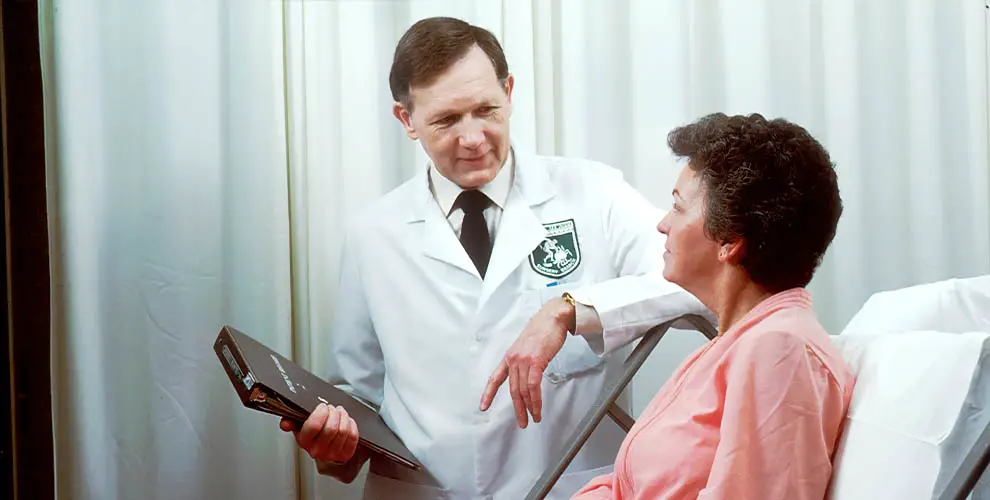
Open Communication Matters:
There’s no need to completely give up coffee while on Spironolactone, but it’s essential to be mindful of how the two may interact. Following the recommended guidelines and best practices can help you maintain a healthy balance while managing your condition. Always prioritize your well-being and make informed choices to ensure that your coffee habits complement your medication regimen effectively.
Be Transparent About Frequency:
During your medical appointments, make it a point to discuss how often you consume coffee. Whether it’s a daily ritual or an occasional indulgence, the frequency can impact how your body responds to both caffeine and spironolactone. This transparency allows your healthcare provider to tailor their recommendations based on your unique habits.
Detailing Your Coffee Choices:
Not all coffee is created equal. The type of coffee you drink, its caffeine content, and any additives can influence its interaction with spironolactone. If you prefer a strong espresso or a mild decaffeinated brew, share these details with your healthcare provider. It’s an opportunity to fine-tune advice based on the specifics of your coffee preferences.
Monitoring for Side Effects:
Your healthcare provider may recommend monitoring for any side effects that could arise from the combination of coffee and spironolactone. Symptoms such as increased blood pressure, dehydration, or changes in mood should be reported promptly. Regular check-ins allow for adjustments to your plan if needed.
The timing of your coffee consumption in relation to taking spironolactone is crucial. If your medication is part of your morning routine, discuss whether it’s advisable to have your coffee before, after, or with your medication. This consideration helps mitigate potential interactions and ensures the effectiveness of spironolactone is not compromised.
Navigating coffee consumption while on spironolactone requires a collaborative approach with your healthcare provider. Openly discussing your habits ensures that the recommended guidelines are tailored to your individual needs. Remember, your health is a partnership, and by actively engaging in conversations about your lifestyle choices, you empower yourself to make informed decisions that align with your overall well-being.
Conclusion
In the quest to answer the common question, “Can I drink coffee while taking Spironolactone?” it’s evident that the relationship between coffee consumption and this medication is nuanced. The key lies in understanding your body, communicating openly with your healthcare provider, and following recommended guidelines.
Coffee enthusiasts need not bid farewell to their beloved brew; instead, moderation and awareness become our allies. The importance of discussing your coffee habits during medical consultations cannot be overstated. Your healthcare provider, armed with knowledge about your frequency of coffee consumption, the type of coffee you prefer, and the timing of your doses, can offer personalized advice to ensure a harmonious coexistence between your coffee ritual and Spironolactone regimen.
Ultimately, your health is a partnership between you and your healthcare team. By actively engaging in conversations about your lifestyle choices, you become an informed participant in decisions that impact your overall well-being. So, can you drink coffee while taking Spironolactone? The answer lies in the dialogue between you and your healthcare provider, a collaboration that ensures your health journey is both effective and enjoyable.
Related article:

